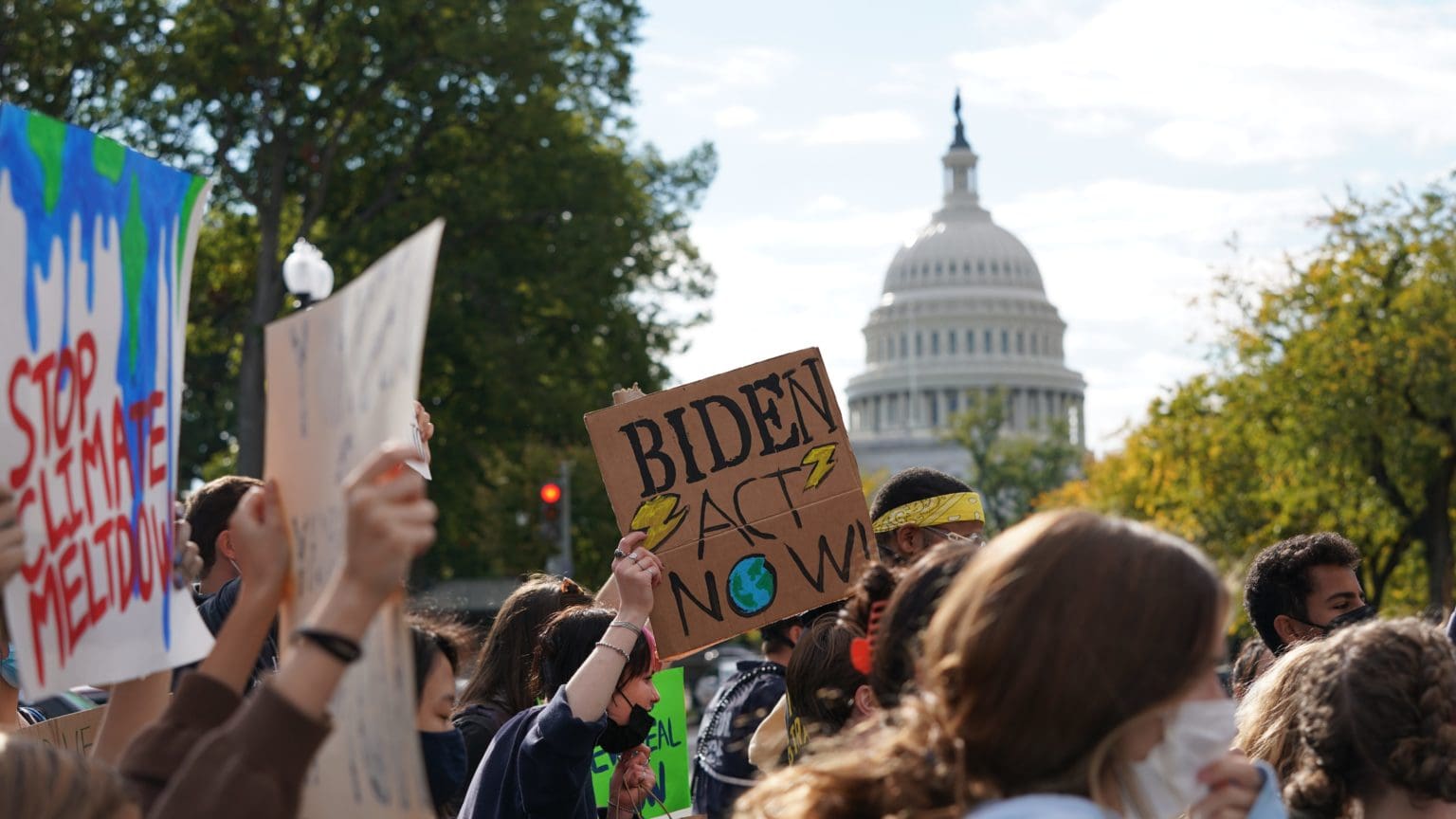Although US President Joe Biden stated on 20 July that climate change is an emergency, he did not go through with a formal declaration, which would allow for quick and significant executive action. Instead, he announced a modest bundle of not-so-ambitious policies. While there are undoubtedly a number of factors that hinder his actions, Biden could certainly do more to protect the environment.
An Emergency or Not?
‘Climate change is literally an existential threat to our nation and to the world, this is an emergency, an emergency, and I will look at it that way,’ Biden said emphatically.
Despite the dramatic wording of his message– and it is no question climate change is an existential threat– the President chose not to declare a formal emergency.
The policies that were announced include new off-shore wind projects in the Gulf of Mexico and funding for community cooling centres.
The Federal Emergency Agency will provide $2.3 billion in funding to help states build the centres. This is the largest ever investment in the Building Resilient Infrastructure and Communities programme.
‘Today we open up yet another coast and frontier in expanding offshore wind,’ senior officials told reporters regarding the wind project. If the projects materialize, the wind turbines could power more than 3 million family homes.
Critics say these actions fall short of what the US could do
Critics say these actions fall short of what the US could do if it really pulled its weight in the combat against climate change. Democratic lawmakers and environmentalists demand that Biden declare a climate emergency. The declaration would allow the use of the Defense Production Act of 1950 to increase the output of renewable energy products and systems.
The act provides significant emergency authority to control domestic industries. The act was invoked as a response to the COVID-19 pandemic by both Trump and Biden to limit the export of medical goods and increase production of vaccines and tests.
‘I’m running the traps on the … authority I have,’ Joe Biden told reporters. ‘I’ll make that decision soon,’ he answered when asked if he would eventually make the declaration.
‘More Is to Come’
‘In the coming days, my administration will announce the executive actions we have developed to combat this emergency,’ Biden said.
According to US climate envoy John Kerry, nobody is more committed to the replacement of carbon-based energy than Biden.
West Virginia v. Environmental Protection Agency
Kerry also mentioned the recent Supreme Court ruling as a reason for the not-so drastic response to the climate crisis.
In the West Virginia v. EPA case, the Supreme Court narrowed the powers of the Environmental Protection Agency, ruling that the US government can not use its existing authority to phase out coal-fired power generation without ‘clear congressional authorization.’ However, clear congressional authorization to phase out coal would require the agreement of Senator Joe Manchin, a Democrat who represents West Virginia, a state with an enormous reserve of coal, and who himself owns a coal-trading company.
But, while it seemed that Manchin, as he has said multiple times, would not agree to the proposed climate bill, he has done a U-turn. Manchin in the end agreed to sign the bill, on condition of a few modifications. The text of the bill now says the new regulation ‘will include investments in the technologies needed for all fuel types – from hydrogen, nuclear, renewables, fossil fuels and energy storage’ and that it ‘does not arbitrarily shut off our abundant fossil fuels.’
Manchin in the end agreed to sign the bill
Promises
Biden’s campaign promise of ending oil and gas drilling on public land remains incomplete. Not only did he not keep his promise, but due to sky-high gasoline prices, he has been forced to beg domestic and foreign oil producers to boost extraction in an attempt to reduce prices.
The president has promised that the US will slash emissions in half in the next eight years and reach 100% clean electricity by 2035, but these goals, and America’s climate-credibility, will be jeopardized without decisive action from Congress and Biden himself.
With Congress limited by Manchin and Biden limited by the Supreme Court ruling, it seems that climate action is more or less dead in the US.
According to John Larsen, partner at Rhodium Group, a climate and energy analysis organization, ‘The ball needs to start rolling very fast, very soon, if we are to get there (2030 goals). Everyone needs to really step up and start delivering.’
Climate change is already ravaging the planet faster than expected. Heatwaves are boiling the globe; extreme weather events are increasingly more common and time is running out for meaningful action. As the executive leader of one of the largest economies in the world, President Joe Biden is personally responsible for climate action. While it should be acknowledged that the US has made progress towards energy transition, the president could and should do more in order to avert a potentially cataclysmic future.








